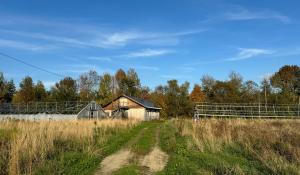To combat the long lasting environmental impacts of industrial agriculture, we need to farm in a way that preserves soil health, removes toxins, and protects the health of farm workers, farmers, and consumers.
Agriculture is the most polluting industry in the world because of the prevalent use of chemical pesticides and herbicides. Overtime, these toxic chemicals not only degrade soil health, but also pollute water supplies and harm the health of surrounding communities. In addition, a majority of US crops are genetically engineered.
Organic farming, and regenerative agriculture in particular, are holistic approaches which do not use chemicals. This approach improves soil health, does not cause toxic run-off, and protects farmworker health.
What Does the Organic Label Mean?
The USDA organic standard is maintained by the government and incorporates policies for maintaining soil fertility and crop nutrient levels, limiting pesticide and fertilizer usage, and preventing overall negative impacts on surrounding environments. Choosing products with the USDA organic label is a trustworthy way to avoid GMOs.
Key Practices of USDA Certified Organic:
- Prohibits use of most chemical/synthetic fertilizers and pesticides.
- Prohibits antibiotic and synthetic hormone use.
- Prohibits GMOs in all aspects of farming and processing.
Family Farms: An Invaluable Part of a Sustainable Agricultural System
Family farmers are farms, often small-scale, that take a holistic approach with concern for the broader and long-term impacts that agriculture has on the environment and community. The current generation of farmers works to ensure the sustainability of natural resources and livelihoods for future generations and surrounding communities.
However, many small-scale and family farms have been squeezed out of business by the consolidated power of corporate agribusiness and a shift to “factory farm” production.
In 2014, Green America began expanding our collaboration with farmers, gardeners, and growers across the US. We are committed to celebrating our nation’s food producers. We work to amplify the voice of the farming community and bridge the gap of communication between farmers, consumers, and policy makers.
Thank you to all those growing our food. We appreciate you






